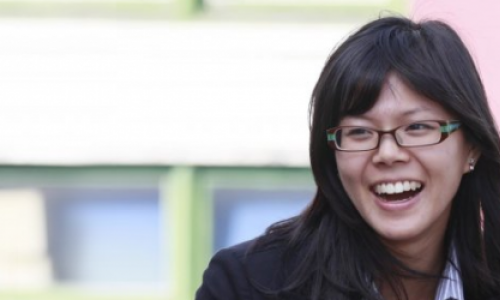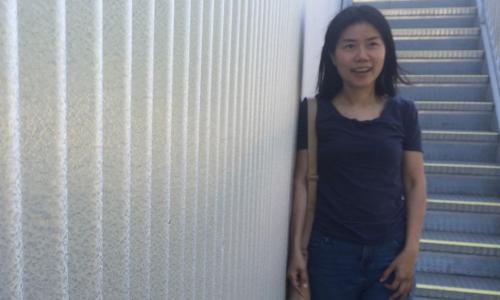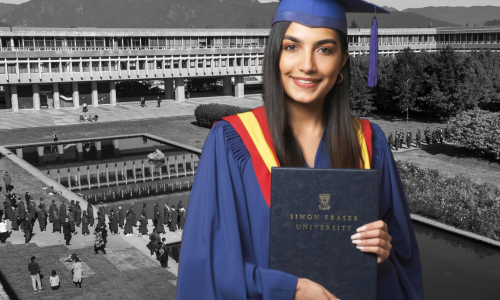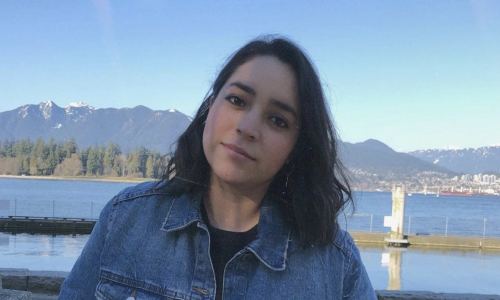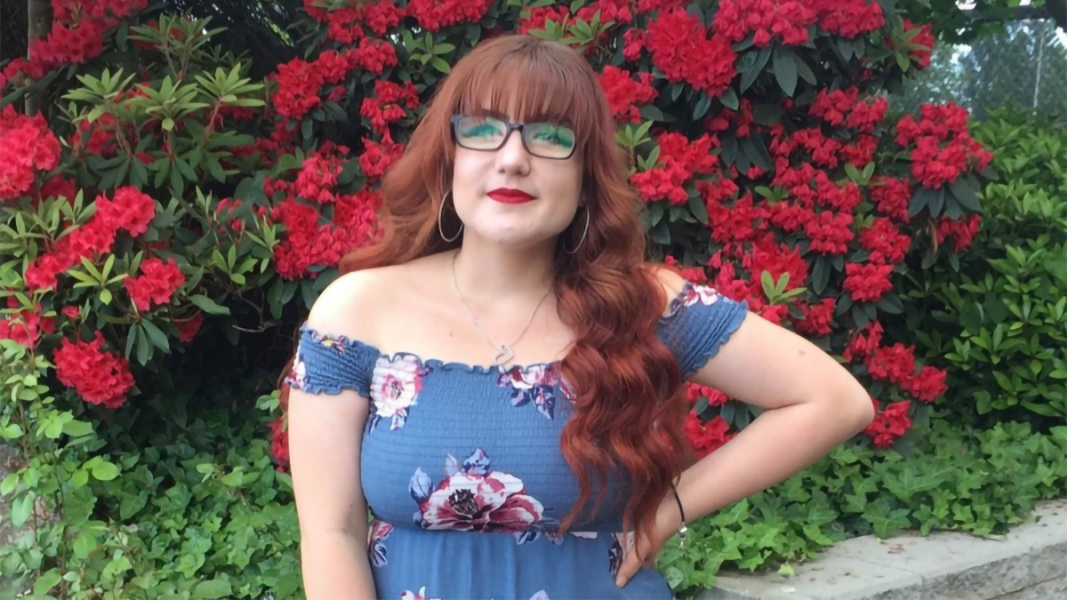
Miranda Pinter-Colett was first introduced to the field of International Studies (IS) in the debate chamber. An avid debater since high school, Pinter-Collett was expected to have a depth of knowledge on a broad range of subjects, from political science, to economics, to philosophy, but says the rounds about international relations were always her favourite. Then, when she started at SFU she chose to major in IS because it allowed her to explore her wide range of interests, “International Studies is a major where I could study a little bit about everything I wanted to learn,” she says.
Pinter-Collett’s debate skills propelled her and the Simon Fraser University Debate Society into the playoffs at the prestigious Hart House Intervarsity (HHIV) debate competition, and she credits much of her academic success to her experience crafting well thought-out arguments. Simultaneously, she says that her time with the School for International Studies was invaluable throughout her debate career.
Pinter-Collett’s academic achievement also led her to teaching a microcredit course on debating for the Faculty of Arts and Social Sciences, an experience that would become a highlight of her undergraduate degree.
Originally, I chose to major in International Studies because my favorite debate rounds were the ones that involved international relations. International Studies was also a major where I could study a little bit about everything I wanted to learn, whether it was political science, economics, philosophy, sociology, or history.
The reason I stayed in International Studies was because the department always had more courses I wanted to take. I think it's normal once you get part way through your degree to feel uninspired, like you're just completing courses for the sake of credits. But I never felt this way because there were always new professors, new seminars, and more interesting courses I wanted to take.
Debate absolutely helped me during my undergraduate degree. As someone who was a very active debater in high school, I came into university already knowing how to construct and deconstruct a thought-out argument, and I had knowledge on topics that many folks fresh out of high school don't have expereince with. Most teenagers were not debating about whether the UN should facilitate independence referendums for semi-autonomous regions in their spare time. Entering university with this knowledge and these skills helped me immensely in being able to engage, discuss, and critique course material and write papers.
Simultaneously, studying International Studies was extremely useful to me as a debater. Oftentimes, when you're debating against top teams at high caliber tournaments, a debate round is won or lost on your knowledge of a topic. When all of the people in the room are excellent, the distinguishing factor often becomes which team has the greatest depth of knowledge and analysis on a subject. My education in International Studies provided me much of this depth, which often directly contributed to my partner and I’s success. A great example of this, was when my debate partner and I won an international championship based in Malaysia, on a round about whether it was in the interest of the UAE to normalize ties with Israel; my background in international studies, an inherently multi-disciplinary field, gave us what we needed to outdo our fantastic opponents.
Of all the IS courses, my two favourites were the class I took on Central Asia, and the one I took on Social Movements in Africa. I loved them because I got to learn about parts of the world that we often don't learn much about in Canada, and it gave us a chance to delve into the political context of these areas. My favorite project had to be writing my final paper for Dr. Jackson’s class on Central Asia, which eventually got published in the Cambridge Undergraduate Journal of Political Affairs
The most memorable moment of my undergraduate degree was getting the opportunity to teach a micro-credit course at SFU. The experience of working as an instructor, even for a short micro-credit class, was truly invaluable and, honestly, really cool. The fact that I was encouraged, believed in, and supported by FASS, despite the unconventional nature of hiring a pair of undergraduate students to teach a class really inspired me. Universities can sometimes feel like these big, cold, bureaucratic institutions that don't actually care about students as much as their PR campaigns suggest. However, this experience really showed me that there are lots of people at SFU that truly will go above and beyond to support students and fight to see us succeed.
I wish I could tell every new student to take advantage of all of the resources available to them at SFU, to apply for things they think they are unqualified for, to reach out to their professors who seem scary and intimidating, and to seek out as much information about potential opportunities as possible. I really believe a lot of students miss out on incredible experiences just because they're too afraid of reaching out, or because they don't put effort into seeking out opportunities. Everyone deserves to have an amazing university experience and oftentimes the chance to make it amazing is just within reach if you're willing to go for it.
This story was originally published on the School for International Studies website on June 8, 2022.











